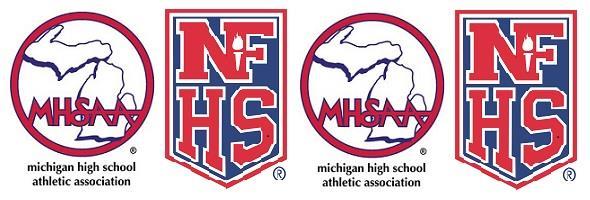
Truth About Sports Scholarships
March 30, 2018
 By Bob Gardner
By Bob Gardner
Executive Director of the National Federation of State High School Associations
Many parents are trying to live the dream through their sons and daughters – the dream of landing a college athletic scholarship by specializing in a sport year-round. Unfortunately, most of these dreams are never realized.
The odds of a sports scholarship paying for even a portion of a student’s college education are miniscule.
The College Board, a not-for-profit organization comprised of 6,000 of the world’s leading educational institutions, reports that a moderate cost for college students who attend a public university in their state of residence is $25,290 per year. The annual cost at a private college averages $50,900.
Meanwhile, the most recent data from the NCAA reveals that the average Division I athletic scholarship is worth only $10,400. More significantly, the same study shows that fewer than two percent of all high school athletes (1 in 54) ever wear the uniform of an NCAA Division I school.
Even if the dream is realized, parents likely will spend more money for club sports than they ever regain through college athletic scholarships. Thanks to the costs of club fees, equipment, summer camps, playing in out-of-state tournaments and private coaching, youth sports has become a $15 billion-per-year industry.
There is an option, and it’s a financially viable one: Encourage your sons and daughters to play sports at their high school.
In education-based high school sports, student-athletes are taught, as the term implies, that grades come first. The real-life lessons that students experientially learn offer insights into leadership, overcoming adversity and mutual respect that cannot be learned anywhere else. Unlike club sports, coaches in an education-based school setting are held accountable by the guiding principles and goals of their school district. And the cost of participating in high school sports is minimal in most cases.
While there is a belief that the only way to get noticed by college coaches is to play on non-school travel teams year-round, many Division I football and basketball coaches recently have stated that they are committed to recruiting students who have played multiple sports within the high school setting.
In addition, by focusing on academics while playing sports within the school setting, students can earn scholarships for academics and other talents—skill sets oftentimes nurtured while participating in high school activities. These scholarships are more accessible and worth more money than athletic scholarships. While $3 billion per year is available for athletic scholarships, more than $11 billion is awarded for academic scholarships and other financial assistance.
Without a doubt, your sons and daughters will have more fun, make more friends and be better prepared for life beyond sport by participating in multiple sports and activities offered by the high school in your community.

Become an Official: HS Sports Need You
January 24, 2018
By Bob Gardner, Executive Director of the National Federation of State High School Associations
and Mark Uyl, Assistant Director of the Michigan High School Athletic Association
They don’t make the headlines, their names are not in the box scores and they don’t make the all-star teams. But perhaps the most important individuals in high school sports are the contest officials.
These individuals are so important that, in fact, there would be no organized competitive sports at the high school level without the men and women who officiate these contests every day across the country. Subtract the dedicated men and women who officiate high school sports, and competitive sports would no longer be organized; they would be chaotic.
In some areas of our country, high school officials are retiring faster than new ones are being added. And junior varsity, freshmen and middle school games are being postponed – or even cancelled – because there are not enough men and women to officiate them.
Anyone looking for a unique way to contribute to the local community should consider becoming a registered high school official. For individuals who played sports in high school, officiating is a great way to stay close to the sport after their playing days have ended. Officiating helps people stay in shape, expands their social and professional networks and offers part-time work that is flexible, yet pays. In fact, officiating is a form of community service, but with compensation.
Another benefit of officiating is that individuals become role models so that teenagers in the community can learn the life lessons that high school sports teach. Students learn to respect their opponents and the rules of the game and the importance of practicing good sportsmanship thanks, in part, to those men and women who officiate. And the objectivity and integrity that high school officials display is an example that every young person needs to observe firsthand. In short, communities around the country will be stronger because of the life lessons that high school officials help teach the next generation.
Officiating is a great way to stay connected to sports and to give back to the local high school and community. We need dedicated men and women to become involved so that high school sports can continue to prosper for years to come.
Individuals interested in learning more about becoming a high school official, and even beginning the application process, can do so at www.HighSchoolOfficials.com.

